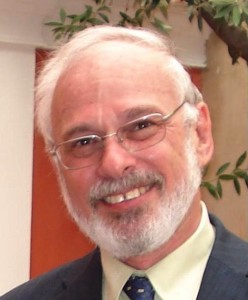Related Research Articles
In genetics, rs6313 also called T102C or C102T is a gene variation—a single nucleotide polymorphism (SNP)—in the human HTR2A gene that codes for the 5-HT2A receptor. The SNP is a synonymous substitution located in exon 1 of the gene where it is involved in coding the 34th amino acid as serine.
In genetics, rs6311 is a gene variation—a single nucleotide polymorphism (SNP)—in the human HTR2A gene that codes for the 5-HT2A receptor. 5-HT2A is a neuroreceptor, and several scientific studies have investigated the effect of the genetic variation on personality, e.g., personality traits measured with the Temperament and Character Inventory or with a psychological task measuring impulsive behavior. The SNP has also been investigated in rheumatology studies.
The Max Planck Institute of Psychiatry is a scientific institute based in the city of Munich in Germany specializing in psychiatry. Currently directed by Elisabeth Binder and Alon Chen, it is one of the 81 institutes in the Max Planck Society.
Jules Angst is a Swiss academic who is Emeritus Professor of Psychiatry at Zurich University in Zurich, Switzerland, and Honorary Doctor of Heidelberg University in Heidelberg, Germany.
The European College of Neuropsychopharmacology (ECNP) is a pan-European, non-profit scientific association that serves as a platform to exchange and promote research in the field of neuropsychopharmacology. The ECNP “is committed to ensuring that advances in the understanding of brain function and human behaviour are translated into better treatments and enhanced public health”. The ECNP organises a number of activities to achieve this aim, such as a yearly congress, workshops, seminars, New Frontiers Meetings, publications, awards, supported talks and much more.
Barbara Jacquelyn Sahakian, is professor of clinical neuropsychology at the department of psychiatry and Medical Research Council (MRC)/Wellcome Trust Behavioural and Clinical Neuroscience Institute, University of Cambridge. She is also an honorary clinical psychologist at Addenbrooke's Hospital, Cambridge. She has an international reputation in the fields of cognitive psychopharmacology, neuroethics, neuropsychology, neuropsychiatry and neuroimaging.

Moussa B. H. Youdim is an internationally renowned Israeli neuroscientist specializing in neurochemistry and neuropharmacology. He is the discoverer of both monoamine oxidase (MAO) B inhibitors l-deprenyl (Selegiline) and rasagiline (Azilect) as anti-Parkinson drugs which possess neuroprotective activities. He is currently professor emeritus at Technion - Faculty of Medicine and President of Youdim Pharmaceuticals.
The genetic influences of post-traumatic stress disorder (PTSD) are not understood well due to the limitations of any genetic study of mental illness; in that, it cannot be ethically induced in selected groups. Because of this, all studies must use naturally occurring groups with genetic similarities and differences, thus the amount of data is limited. Still, genetics play some role in the development of PTSD.
Mark J. Millan is a neuroscientist specialising in the study and improved treatment of disorders of brain. He was the Director of Pharmacological Innovation for the Central Nervous System (CNS) at the Institut de Recherché de Servier (IDRS) in Paris, France. He also served as the Secretary of the European College of Neuropsychopharmacology. Currently he is a Visiting Professor in the School of Psychology and Neuroscience at the University of Glasgow. Born in Edinburgh, he is the son of former Scottish Labour Party Leader and European Commissioner, Bruce Millan. He studied at Cambridge University and then spent ten years at the Max Planck Institute of Psychiatry, Munich, before moving to Paris.
Wim van den Brink is emeritus Professor of Psychiatry and Addiction at the Academic Medical Center, University of Amsterdam. He was Director of the Amsterdam Institute for Addiction Research (AIAR) and Scientific Director of the National Committee for Treatment of Heroin Addiction (CCBH) in Utrecht, the Netherlands.
Martien J. H. Kas is professor at the Groningen Institute for Evolutionary Life Sciences, University of Groningen, the Netherlands, where he leads a research group entitled "Behavioural Neuroscience". His research aims to develop a quantitative, transdiagnostic and translational neurobiological approach to the understanding of neuropsychiatric disorders in order to accelerate the discovery and development of better treatments for patients with those disorders. The ability to precisely link neuropsychiatric symptoms to underlying neurobiology will not only facilitate the development of better treatments, it will also allow physicians to provide patients with a better understanding of the complexities and management of their illness.
Astrid Linthorst is a professor of neuroscience at the School of Clinical Sciences at the University of Bristol, UK. Specializing in the neurochemistry and neuroendocrinology of stress and behavior, she heads a research group on the mechanisms that support coping with stress in the brain. She is also chair of the Scientific Programme Committee of the ECNP Congress and a member of the European College of Neuropsychopharmacology (ECNP) Executive Committee.
Hans-Ulrich Wittchen is a clinical psychologist, psychotherapist and epidemiologist. He has been a head of the Institute of Clinical Psychology and Psychotherapy and the Center of Clinical Epidemiology and Longitudinal Studies (CELOS) at the Technische Universität Dresden. Since 2018, he is leading the research group "Clinical Psychology and Psychotherapy Research" at the Psychiatric Clinic of Ludwig-Maximilians-Universität München and directs the IAP-TU Dresden GmbH in Dresden.
Epigenetics of anxiety and stress–related disorders is the field studying the relationship between epigenetic modifications of genes and anxiety and stress-related disorders, including mental health disorders such as generalized anxiety disorder (GAD), post-traumatic stress disorder, obsessive-compulsive disorder (OCD), and more. These changes can lead to transgenerational stress inheritance.

Dr. Natalie Matosin is an Australian scientist known for research into the impacts of the human brain in health and disease, and particularly stress and its role in mental illness. Matosin's research has been published in prestigious academic journals, as well as on The Conversation. Matosin spoke at TEDx Hamburg in June 2017 and is the 2021 Al & Val Rosenstrauss Fellow. She was previously a National Health and Medical Research Council CJ Martin Early Career Research Fellow, and Alexander von Humboldt Fellow. In 2017, Matosin was listed as a Forbes 30 Under 30 in Europe in the category of Science & Healthcare, placing her in the top 1% of innovators worldwide.
Andreas Meyer-Lindenberg is a German psychiatrist and professor in the Medical Faculty Mannheim at Heidelberg University. He is also the director and CEO of the Central Institute of Mental Health in Mannheim, as well as medical director of their Department of Psychiatry and Psychotherapy. His research includes work on the genetics of complex psychiatric disorders. He has also used neuroimaging to study the neurobiological basis of mental disorders such as Williams Syndrome, and the effects of living in urban areas on mental health and the human brain.

Prof. Robert Haim Belmaker, is an Israeli psychiatrist who has had major academic positions in Israeli psychiatry since 1974. He had a formative influence on biological directions in Israeli psychiatry. He was Hoffer-Vickar Professor of Psychiatry at Ben-Gurion University of the Negev, Beersheva Israel until his retirement and is now Emeritus.
Marie Åsberg is a Swedish psychiatrist. She was based at the Karolinska Institute until retirement in 2004.

Carolyn I. Rodriguez is a Puerto Rican psychiatrist, neuroscientist, and clinical researcher developing treatments for obsessive compulsive disorder as well as mapping circuit dysfunction in the human brain. Rodriguez holds appointments in both clinical and academic departments at Stanford University. Rodriguez is a Clinical Lab Director at the Stanford Center for Cognitive and Neurobiological Imaging, an associate professor and Associate Chair of Psychiatry and Behavioral Sciences, and a Director of several specialized translational research programs.
Andreas Reif is a German psychiatrist. He is director of the Clinic for Psychiatry, Psychosomatics and Psychotherapy at the University Hospital Frankfurt.
References
- ↑ "The Executive Committee". ecnp.eu. Archived from the original on 6 July 2015. Retrieved 30 July 2024.
- 1 2 "Elisabeth Binder, MD, PhD". med.emory.edu/index.html. Archived from the original on 27 September 2018. Retrieved 4 November 2015.
- ↑ "Binder, Elisabeth". mpg.de/en. Retrieved 4 November 2015.
- ↑ "Dr. Elisabeth Binder". AcademiaNet. Retrieved 5 November 2015.
- ↑ "Elisabeth Binder". German Academy of Sciences Leopoldina. Retrieved 26 May 2021.
- ↑ Search Results for author Binder EB on PubMed .